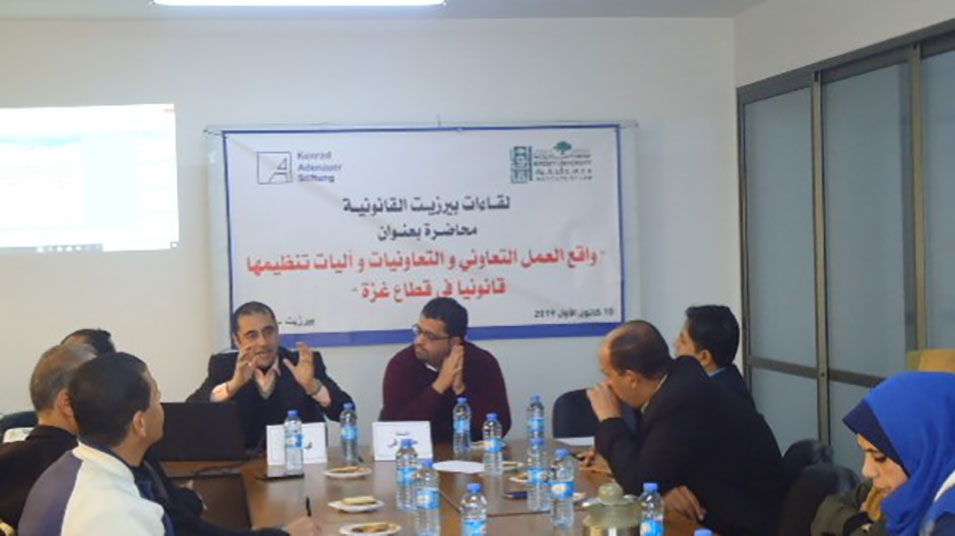Legal encounter on cooperative work in Gaza
Birzeit University’s Institute of Law (IoL) and Konrad Adenauer Foundation held an encounter in Gaza to discuss the legal framework that organizes cooperative work and cooperatives in Gaza.
The encounter that featured Mohammad Haddad, a legal advisor, and Ali Wafi, a researcher of rural development issues, was part of Birzeit University’s lecture series with legal encounters held in the West Bank and Gaza Strip.
Lina Al-Tonisi, administrative coordinator of the IoL in Gaza, inaugurated the encounter. Defining cooperative agencies, Haddad pointed out that they are independent bodies in which persons voluntarily unite to meet economic, social, and cultural needs and fulfil common aspirations.
Explained the legal nature of cooperative agencies, Haddad pointed out that these agencies―as well as the General Cooperative Union in Palestine and sectoral unions registered under the Decree Law No. 20 of 2017―have great flexibility and advantages in their work because they are exempted from taxes and customs and have the right to own movable and immovable property and conclude contracts.
Haddad then touched upon the membership terms of cooperative agencies and their dissolving processes.
Wafi discussed the reality of Gaza’s cooperative agencies that serve different sectors, including agriculture, housing, craftsmanship, services and consumption. He spelled out the challenges and difficulties cooperative agencies in Gaza are facing, most of which are related to the legal and institutional environment and include factors such as the duality of legislation applied in Gaza and the West Bank, limited capabilities of the Cooperative Work Agency (CWA), and insufficient coordination between institutions that support the cooperatives sector.
Wafi recommended to establish a solid cooperative movement in Gaza by institutionalizing the relevant policies, laws and regulations according to the Decree Law No. 20/2017.
At the end of the encounter, the speakers and attendees made a number of comments and recommendations that stressed the importance of raising awareness of cooperative work in Palestine and suggested to combine the efforts of social movements with the work of government and civil society organizations.







